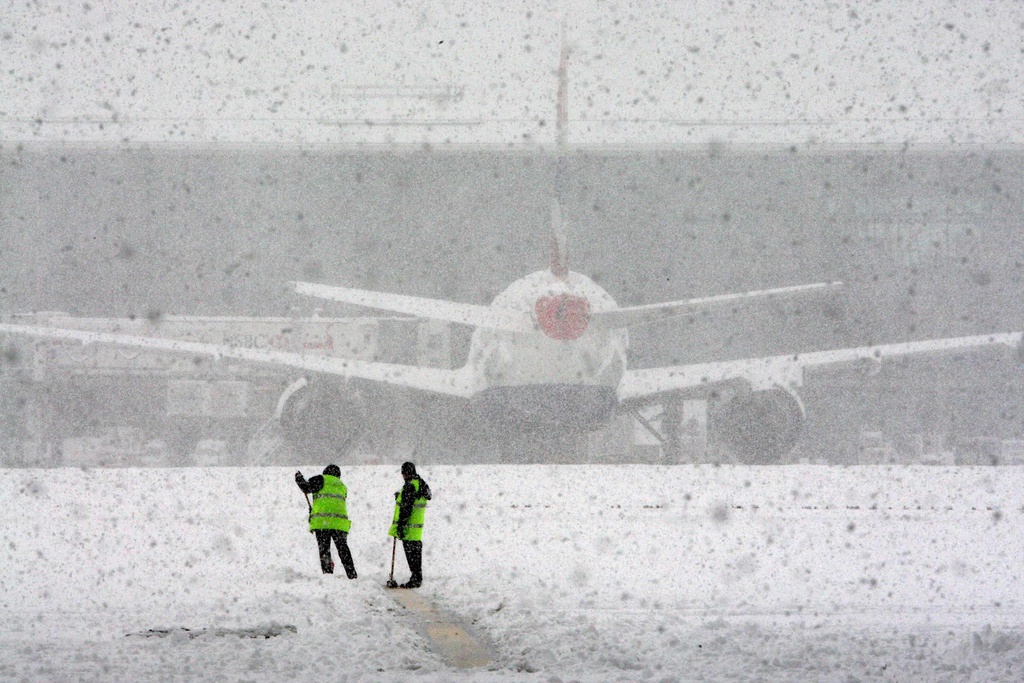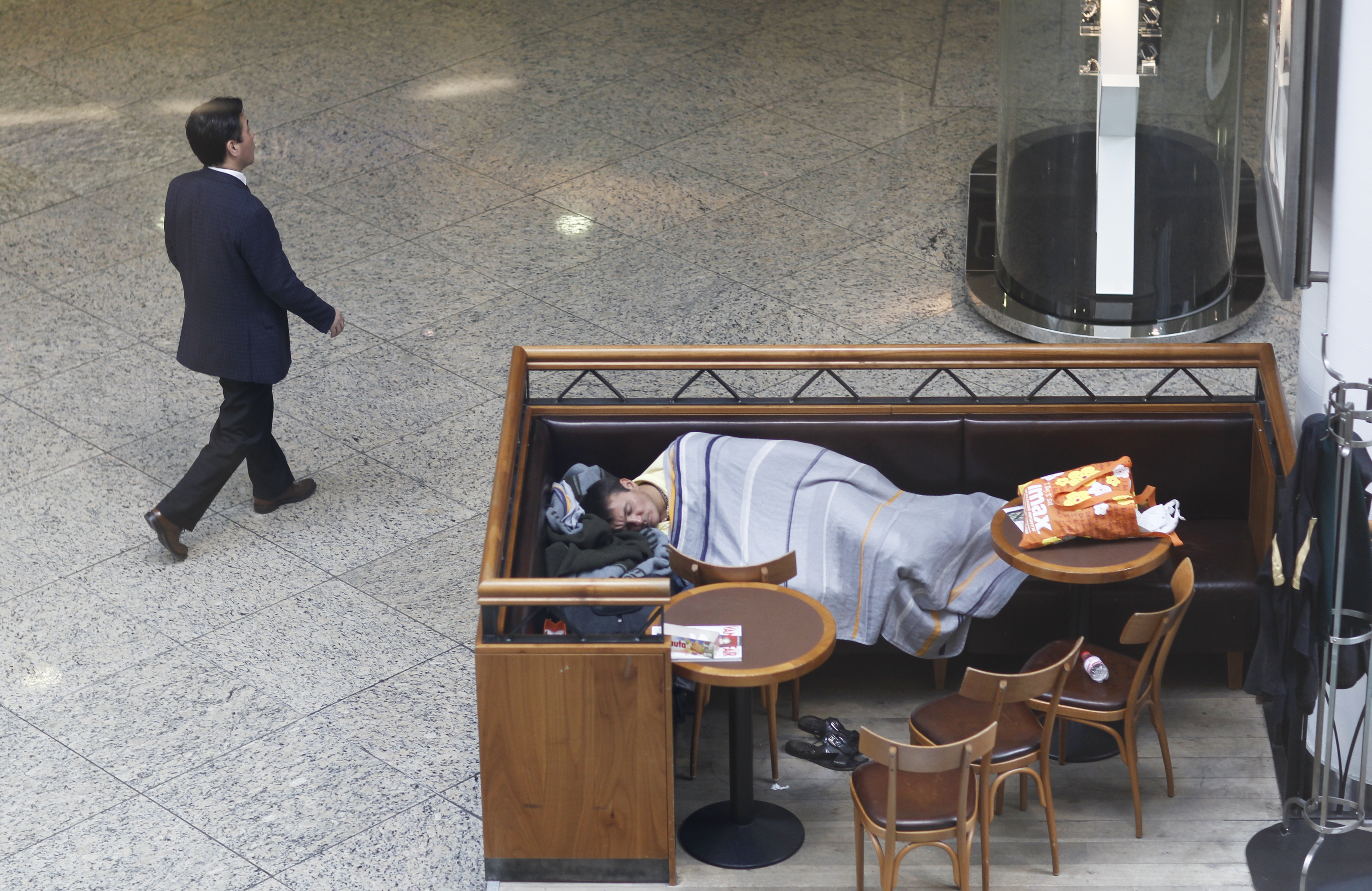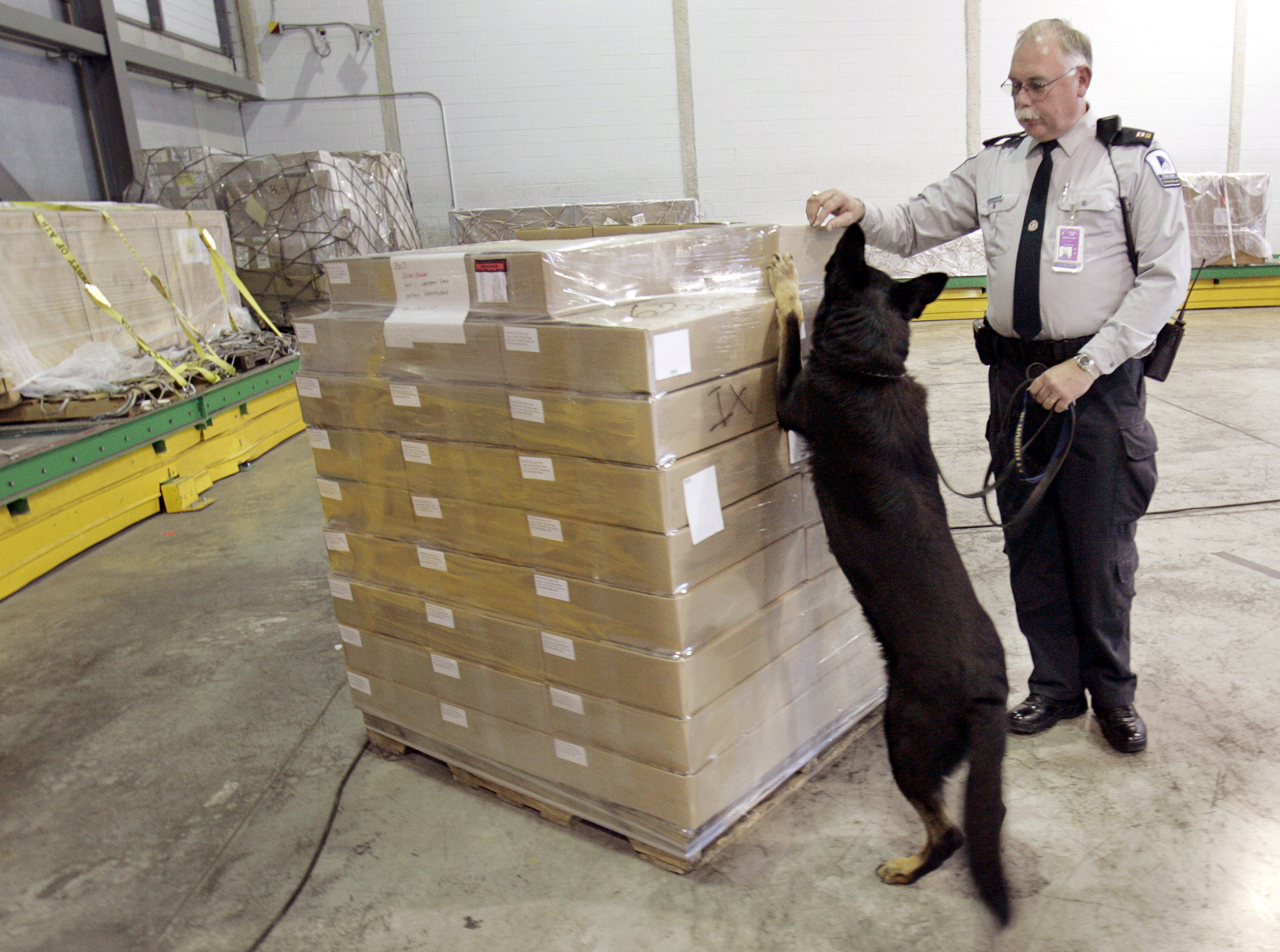Swiss airports feel chill less than neighbours

Switzerland may have been spared the cold weather disruption at many European airports but its busiest hub - Zurich – says it is well prepared for snow.
Heavy snowfall has caused chaos across northern Europe since Thursday, with London Heathrow, Frankfurt, Paris and Brussels airports most in the spotlight.
European Union Transport Commissioner Siim Kallas will meet airport bosses to urge them to “get serious” about tackling the problem. Some airports still have backlog disruptions despite runways being opened.
Switzerland avoided the worst snow conditions and only experienced the knock-on effects of cancelled flights to disrupted destinations.
Hundreds of flights were cancelled collectively to and from Zurich, Geneva and Basel mainly involving Heathrow, Frankfurt and Brussels. The number of passengers stranded at European airports, many of whom are travelling for the festive season, had been drastically reduced by Wednesday.
Swiss International Air Lines has had to cancel 418 flights to the worst affected areas of Europe in the past few days, affecting 39,000 passengers. But Swiss said conditions were returning to normal by Wednesday.
Some heavy snowfall did result in the temporary closure of Geneva airport from 6.40am to 9.15am on Friday.
Snow strategy
But Zurich boasts that it has never been closed for snow in its 62-year history. “We have snow and cold weather every year,” spokeswoman Jasmine Bodmer told swissinfo.ch. “We know how to handle winter.”
“We are also smaller than the likes of Heathrow and have fewer flight movements, so there is less area to clear and less flight disruption as a result.”
Zurich employs a strategy of keeping 350 personnel on standby to deal with bad weather conditions from mid-October to mid-April. They are supported by around 100 machines – snow ploughs, snow blowers and other equipment – that could be utilised around the clock.
Switzerland’s busiest airport also stockpiles half of its estimated demand for de-icing chemicals on site before the snow starts to arrive.
That strategy was put into good effect at the beginning of the month when snow fell heavily throughout Switzerland.
Previous disruption
Despite some cancellations and delays, the airport was kept open to receive many foreign dignitaries – including Bill Clinton, Prince William and British Prime Minister David Cameron – who had arrived for the award of World Cup tournaments by football governing body Fifa.
However, Geneva and Basel airports were unable to cope with the severe weather, as both were shut down for a period. Geneva was closed on December 1 as teams battled to keep up with the unrelenting snowfall, despite being able to call on municipal personnel and vehicles that normally clear roads.
“We had 100 people on the runways with more than 100 machines, but it was snowing so hard that we could not remove it all,” said Geneva International Airport spokesman Bertrand Stämpfli.
The airport said it already has the optimal number of people and machines at its disposal and has no plans to beef up its snow clearing capabilities in future.
“We normally have enough people to clear the snow, but sometimes we face severe situations,” Stämpfli said. “If we have a repeat of that situation [at the beginning of the month] we would have problems.”
Unorthodox methods
Some European airports have considered resorting to unusual methods of tackling the surprisingly heavy snowfalls in the past few days.
Munich employed local farmers to help clear runways but Heathrow turned down a government offer of military help during the worst of the chaos.
But European Commissioner Kallas appears unhappy with ad-hoc measures used to plug the holes. He pointed to Scandinavia, and Sweden in particular – that is also used to regular heavy snowfall – as a future model for other countries.
“We have seen in recent years that snow is western Europe is not such an exceptional circumstance,” Kallas said on Tuesday.
“Better preparedness, in line with what is done in northern Europe is not an optional extra, it must be planned for and with the necessary investment, particularly on the side of the airports.”
The severe snap of cold weather that started hitting western Europe at the end of last week affected many major international airports.
London Heathrow was the worst hit of the large airports with tens of thousands of travellers affected by flight cancellations and delays.
At one point on Monday the world’s busiest international airport had to temporarily shut down both of its runways as several centimetres of snow fell during the coldest winter for more than a decade.
London Gatwick, City and Luton airports were also affected, along with many other destinations in Britain and Ireland.
Snow caused chaos throughout Germany with the key Frankfurt hub airport stopping all flights for several hours on Tuesday morning. Flight delays and cancellations were also experienced at Munich and Berlin.
EU politicians’ Christmas plans were also thrown into turmoil following flight cancellations in Brussels as the airport ran out of de-icing chemicals.
Charles de Gaulle airport in Paris at least did not have to close down as it did during snowfall earlier this month, but it and others in France were also severely disrupted by the recent bad weather.

In compliance with the JTI standards
More: SWI swissinfo.ch certified by the Journalism Trust Initiative





You can find an overview of ongoing debates with our journalists here. Please join us!
If you want to start a conversation about a topic raised in this article or want to report factual errors, email us at english@swissinfo.ch.